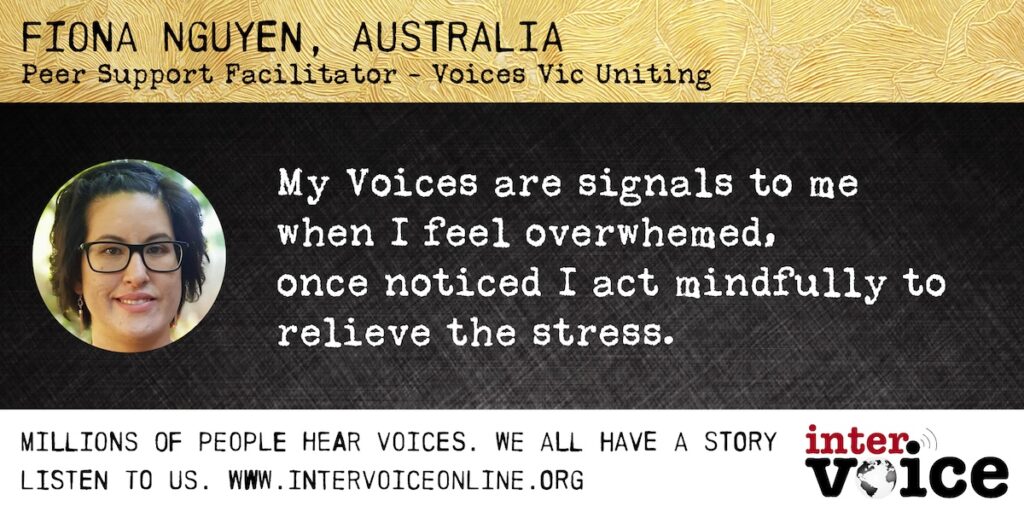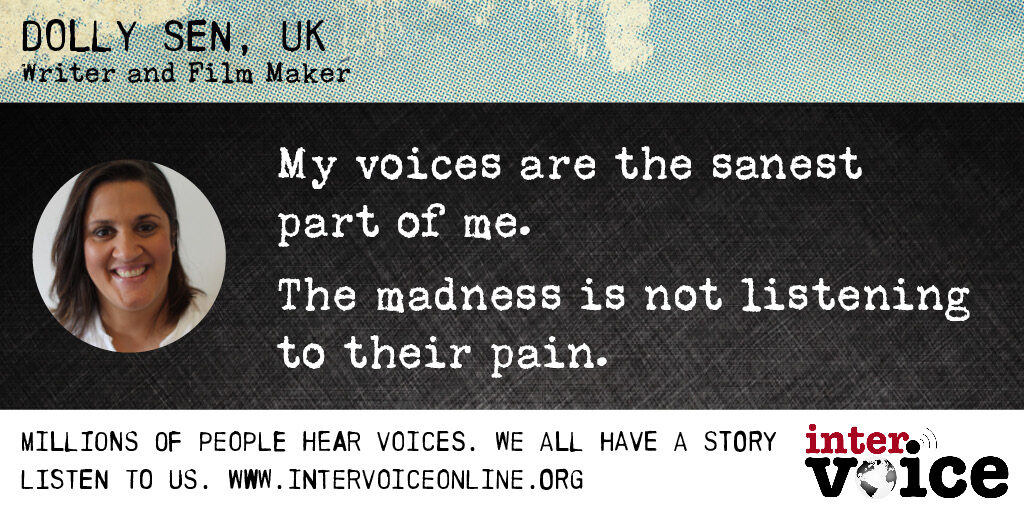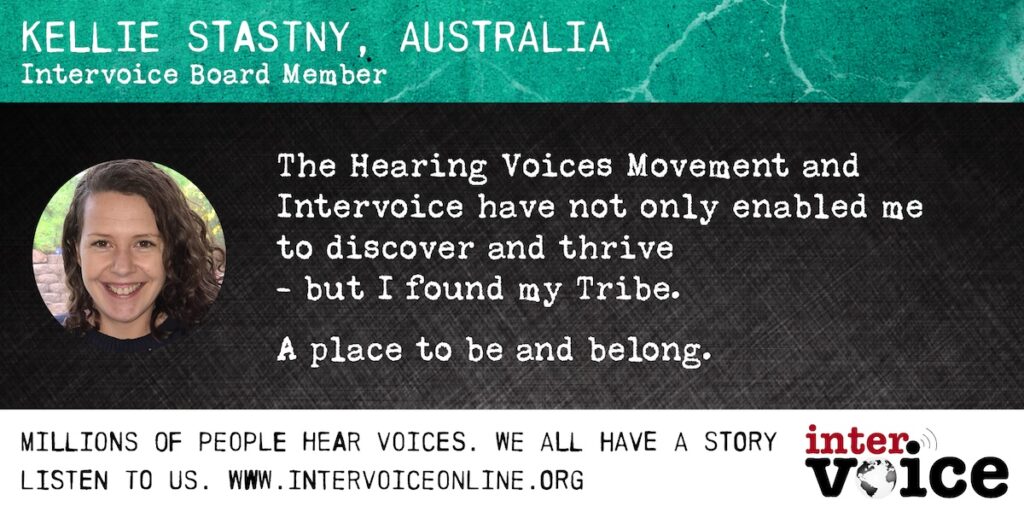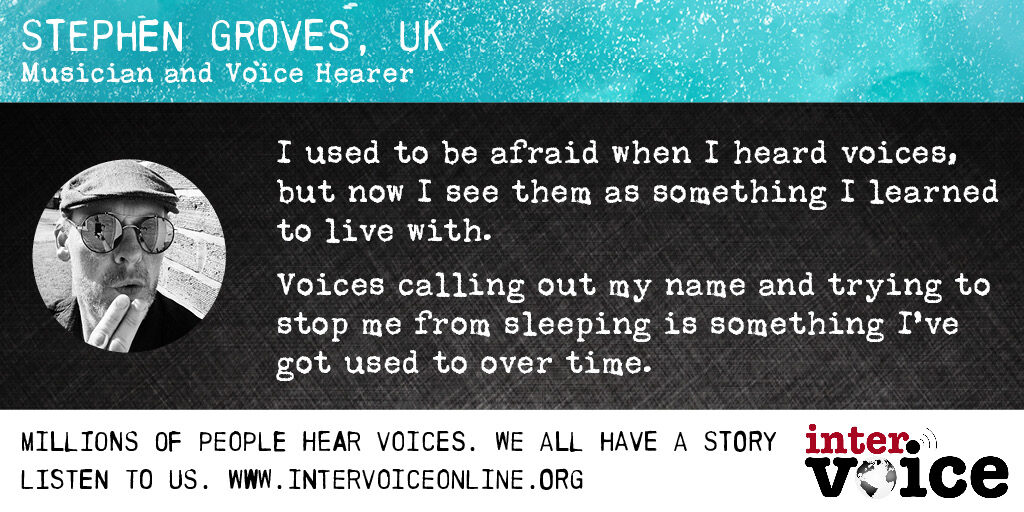It is difficult to explain what it is like to hear “voices”, particularly if you have never heard voices yourself. However, the experience of hearing voices is not as alien an experience as it is generally thought to be.
Firstly, it may be the same as hearing a voice in the normal way through your ears, the difference being that the “voice” has no physical cause – but like normal voices, there is variety and every experience has its differences.
You may think you have never experienced this, but are you sure?
You may have had the experience of hearing someone call your name only to find that there is no one there. Indeed, research shows that especially for people recently bereaved, it is not an uncommon experience to hear the voice of the recently deceased person.
As well as hearing voices through the ears, people also hear voices as if they are thoughts entering the mind from somewhere outside themselves. This is not the same as a suddenly inspired idea, which people usually recognise as coming from themselves, rather the thoughts are not their own and would seem to come from outside their own consciousness, like telepathy.
A good example of this is the experience of recalling a rhyme or tune, which you find yourself repeating unconsciously under your breath and which keeps going through your head again and again. You can even find yourself humming it. You never took a decision to start thinking of it and it’s difficult to stop thinking about it. The difference between the tune and “voice thought” which appears as words in your mind is that it may go on to speak coherently to you and even engage you in conversation. You, yourself are not responsible for it and you have no idea what this “voice” is going to say next.
There are many different ways to hear voices. Voices can be experienced in the head, from outside the head or even in the body. It may be one voice or many voices. The voice may talk to you or about you.
There are other ways to hear voices
Some of them make the phrase “hearing voices” a poor description and perhaps one day we will have to come up with a better one – because it is never the same for everyone. Some people for instance, experience non verbal thoughts, images and visions, tastes, smells and touch. All with no physical cause and all sensations they didn’t call into being themselves.
Voices can be like dreams, we all dream and experience words, images and even sensations. When we are bored we can drift off and have a short dream. When we dream all sorts of strange things can happen to us, but we still believe they’re really happening to us. Hearing voices can be like that – a waking dream – but something that is experienced as real.
For voice hearers, the voices might be present all day and have the effect of preventing them from doing things in their daily life. Voices might also punish the voice hearer if they don’t do what the voice wants them to do. For example; leaving a party on their say so; not being able to talk about the voices; becoming silent and as a result isolated from other people.
There can be a pleasant side to hearing voices
Sometimes the apparent wisdom is real and the voices or some of them can seem intelligent. Voice hearers report that they have been told things they didn’t know or couldn’t work out for themselves and the voices have been of real assistance. For some people this experience is considered a gift, something that is like a valuable insight or even extra sensory perception (ESP.) and the voices can be trusted. Voices can be intelligent, witty, funny and incisive.
Voices can in themselves be a coping mechanism
What the voices say corresponds with the effect that the social and emotional world is having on the voice hearer. The voices will often comment on how the voice hearer is experiencing the world and in this way the voices can be a defence mechanism against overwhelming or forbidden feelings. Voices are often related to life history, such as recent or childhood trauma and the voices speak of powerlessness and injustice. This is complex and personal experience and the voices can respond either as positive guides or as chiding critics.
Can you gain control of the voices?
What do you do about voices, which are not on your side, which denigrate you and insult you, or interrupt your thoughts, or pander detrimental advice and tell you to do stupid things? The first thing to realise is that although the voice may be intruding on your consciousness, that doesn’t mean that you should blindly do what it says. Would you rush off and commit murder if someone told you to? – absolutely not.
People who hear voices have the same right to self-determination as anyone else and you can tell the voices exactly that. If some of the voices are pleasant and friendly, then clearly you chat to them, and not to the ones who are not. You can tell the unpleasant voices that you find them neither pleasant nor useful, and that you have no reason to tolerate them unless they are both.
What about malevolent voices that can cause acute mental pain and can order you to do things (like staying in and avoiding people)?
One solution is to remove as much stress from your life as possible. Not only does stress increase the voices but also it makes them say more unpleasant things. Secondly, don’t ignore the voices as they tend to get more aggressive, however at the same time don’t let them get away with running your life without your permission.












